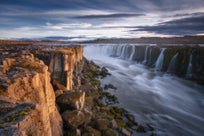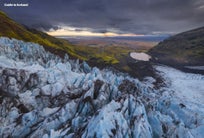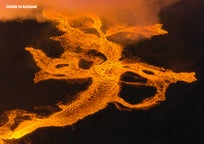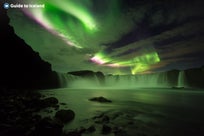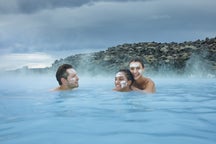
Top 12 Art Museums and Galleries in Reykjavik

- 12. Hofudstodin Art and Culture Center
- 11. Gerdarsafn
- 10. Iurie Fine Art
- 9. Hafnarborg Center of Culture and Fine Art
- 8. Reykjavik Museum of Photography
- 7. The Marshall House
- 6. Asmundarsafn - Asmundur Sculpture Museum
- 5. Einar Jonsson Museum and Sculpture Garden
- 4. Safnahusid - House of Collections
- 3. National Gallery of Iceland
- 2. Kjarvalsstadir - Kjarval Museum
- 1. Reykjavik Art Museum in Hafnarhus
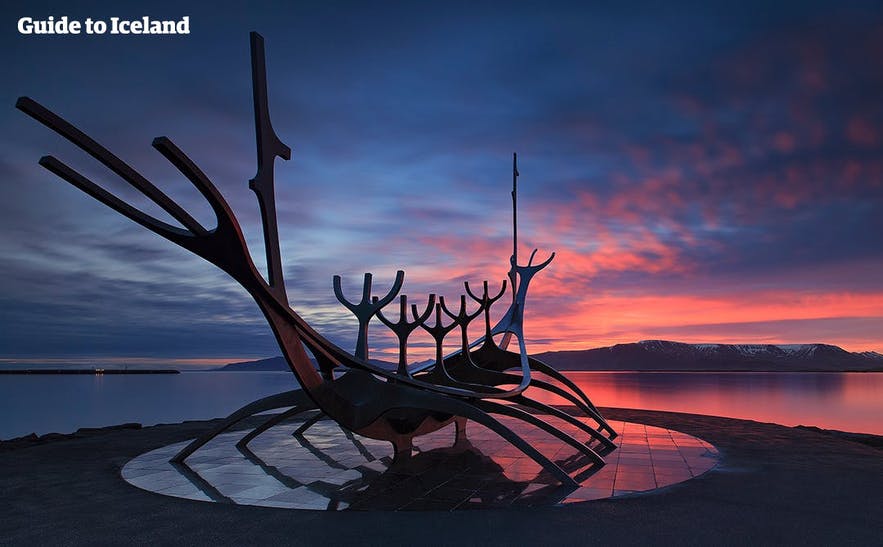
What are the best places to explore the Icelandic art scene and history? Looking for art galleries in Reykjavik or looking to enjoy Icelandic photography? Check out our list of the top 12 top art museums and photo galleries in Reykjavik!
Despite Iceland's capital’s relatively small size, Reykjavik is a hub of cultural activity, and its art museums are some of the most popular attractions for visitors and locals alike. Museums, galleries, and photo exhibitions can be found around almost every corner, proudly displaying the creativity of the island’s most famous artists, as well as allowing space for up-and-comers to contribute their own work to the field.
From contemporary art to classic Icelandic works, the art spaces in Reykjavik offer a unique opportunity to explore Iceland's artistic heritage. Many places also showcase international artists and exhibits, making them a must-visit destination for art lovers.
- Learn about Icelandic creativity in Graffiti and Street Art in Reykjavík
- Experience Iceland's real beauty with Northern Lights Tours & Holidays
- Learn about the city on Reykjavik walking tours
An honorable mention must be given to the streets of Reykjavik. When walking around the city, visitors will find themselves surrounded by artworks of all kinds. Residents often display their own pieces in the windows of their homes, whilst enormous, modern murals and artistic graffiti are painted with psychedelic energy across the sides of the city’s homes and buildings.
There are also numerous statues and sculptures dotting the city streets and parks, all offering an insight into Iceland’s history and art scene. For art lovers, however, there is simply no alternative but to pay a visit to Reykjavik’s top museums and galleries for the best insight into the Icelandic art scene and history. You can easily book a hotel in Reykjavik to stay close, visit these fantastic museums, and immerse yourself in the art scene.
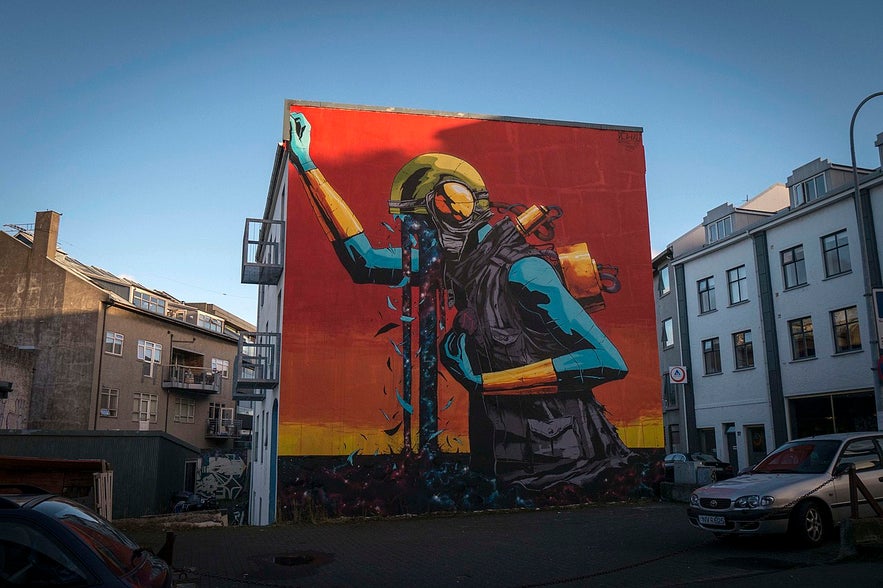
Photo from Wikimedia, Creative Commons, by Bryan Ledgard. No edits made.
- See also: Art in the Streets of Reykjavik
We recommend culture enthusiasts purchase a 24-hour Reykjavik City Card, which is the most affordable and efficient way of visiting the city's many galleries and museums. You can also get one that is valid for 48 hours or 72 hours, which is a great option if you're planning on visiting multiple places during your stay. You can purchase it ahead of time and pick it up at Reykjavik City Hall or at various other convenient locations.
The City Card provides free access to all three buildings of the Reykjavik Art Museum, as well as the National Gallery of Iceland, all exhibitions under the Reykjavik City Museum, the Reykjavik Park and Zoo, and the National Museum of Iceland.
To easily get around the city, we recommend renting a car in Reykjavik. That way, you can visit the museum you want in a convenient way at your own leisure.
12. Hofudstodin Art and Culture Center
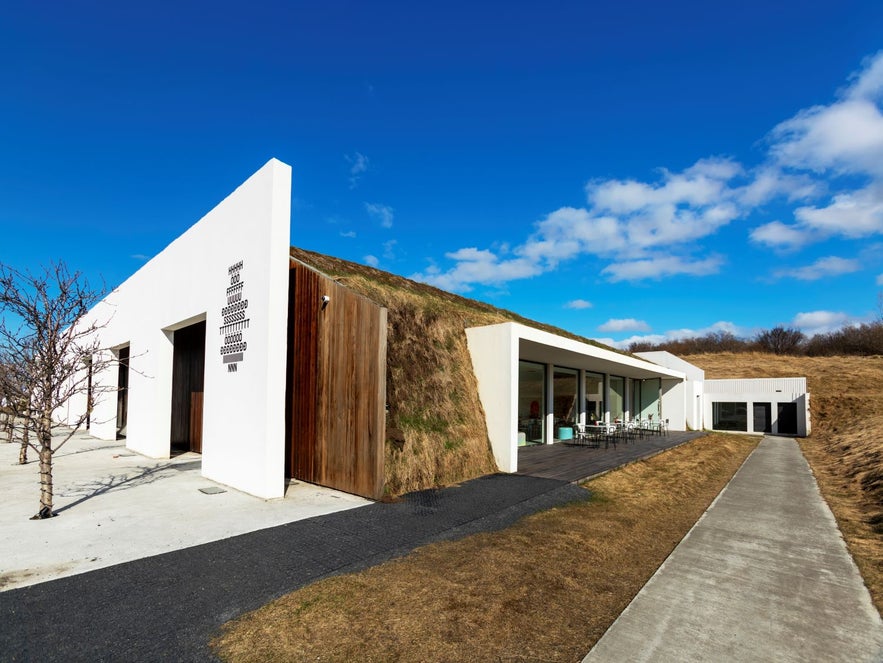 On the edge of the beautiful Ellidaardalur valley in Reykjavik, you'll find Hofudstodin. It's housed in an old military bomb storage hut from the Second World War, which has been transformed into a thriving art and culture center, just a 10-minute drive from the city center!
On the edge of the beautiful Ellidaardalur valley in Reykjavik, you'll find Hofudstodin. It's housed in an old military bomb storage hut from the Second World War, which has been transformed into a thriving art and culture center, just a 10-minute drive from the city center!
It's the home to the work of leading contemporary artist Hrafnhildur Arnardottir, also known as Shoplifter. Most notably, it houses the acclaimed multi-sensory installation Chromo Sapiens which was originally made for the Icelandic Pavilion at the Venice Biennale in 2019.
The piece consists of three caves made with colorful synthetic fur which surrounds the guests. The experience is paired with soundscapes created by the Icelandic band HAM, creating an otherworldly atmosphere. Guests are invited to walk through the cave and relax while exploring their inner selves, and once they've exited, they have transformed from homo sapiens into Chromo Sapiens.
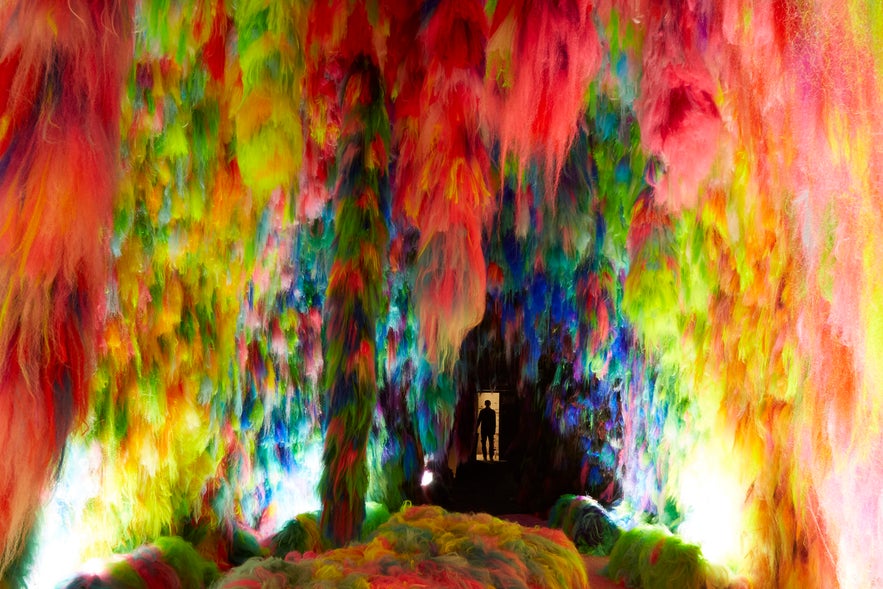
Inside the Chromo Sapiens installation by Shoplifter.
A visit to Hofudstodin offers a unique artistic experience, so it's definitely worth taking the time to check out. There's also a very nice café at the location with views of the surrounding greenery, and the exhibition store has pieces designed by the artist, as well as her collaborations with different brands. Book your entry ticket to Chromo Sapiens now!
Hofudstodin
- Address: Rafstodvavegur 1a, 110 Reykjavik
- Open: Weekdays from 10 AM - 6 PM, Weekends from 11 AM - 5 PM
11. Gerdarsafn
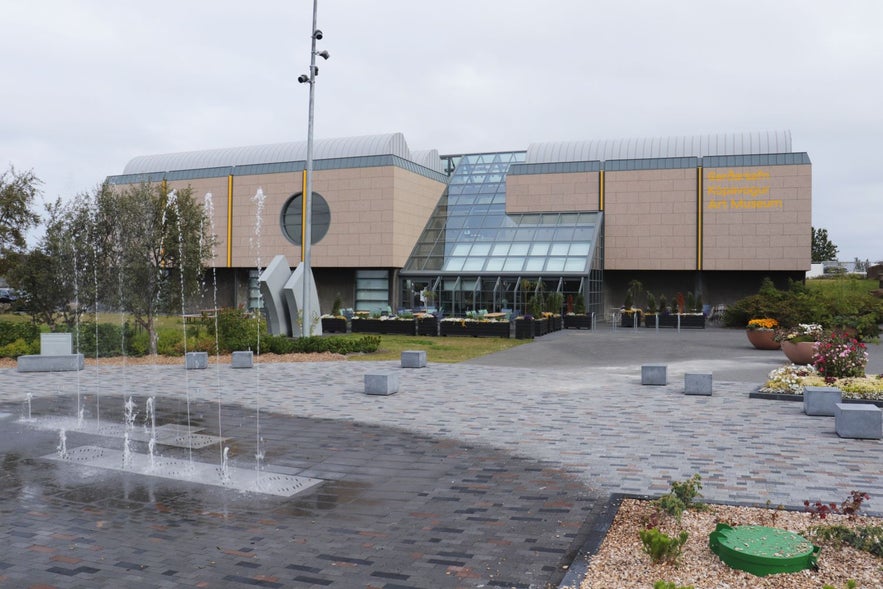
The Gerdarsafn Art Museum is located in Kopavogur, Iceland's second-largest municipality and just a 15-minute drive from central Reykjavik. It features temporary exhibitions showcasing modern and contemporary art by both Icelandic and international artists.
The museum is dedicated to the memory of Gerdur Helgadottir (1928-1975), an influential Icelandic sculptor. She was known for her large abstract artwork and especially for working with rougher materials than women generally did at her time, like metal, clay, and concrete.
She also worked with mosaics and glass, and you can see her work outside the Tollhusid Revenue and Customs building on Tryggvagata street, located next to the Reykjavik Art Museum. She also made stained glass windows for the nearby Kopavogur church and Hallgrimskirkja church.
During your visit, you'll be able to see some of Gerdur's work, along with works of Barbara Arnason, Magnus A. Arnason, and a donated collection from the art instructor, Valgerdur Briem. The museum's temporary exhibitions also feature other new and established artists.
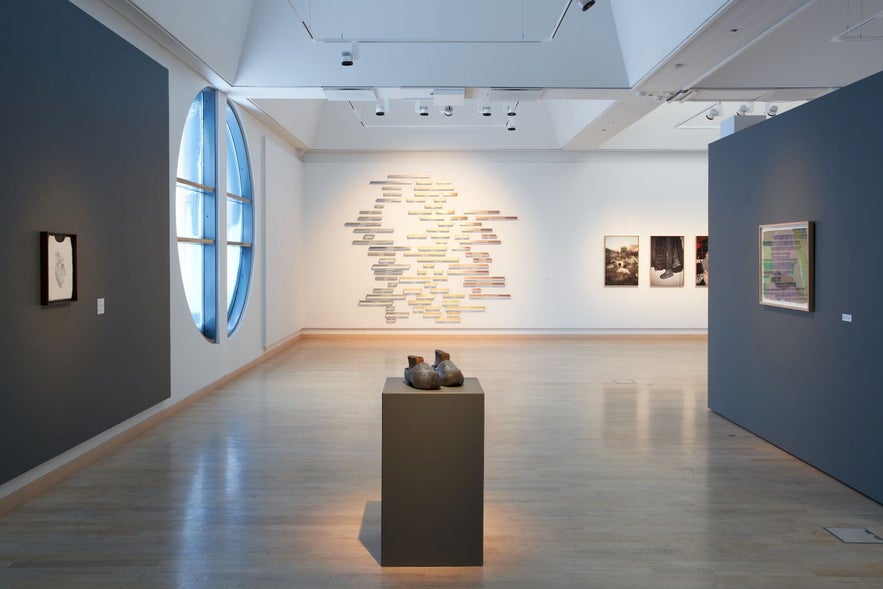 The museum offers an array of educational programs, workshops, and family-friendly activities designed to inspire curiosity and creativity in children and young people. They also have a special creative space meant for families where you can create your own art during your visit!
The museum offers an array of educational programs, workshops, and family-friendly activities designed to inspire curiosity and creativity in children and young people. They also have a special creative space meant for families where you can create your own art during your visit!
They have a nice gift shop with items related to the art on display, as well as jewelry, decor, household items, books, and much more. After your visit, you'll be able to unwind in the cozy café on the bottom floor, with a view over a small park.
Gerdarsafn is part of the Kopavogur Culture Houses, which also include a Natural Science Exhibition located next door, in the same building as the Kopavogur Library. It's most convenient to reach the location by rental car but it's also possible by city bus.
Gerdarsafn
- Address: Hamraborg 4, 200 Kopavogur
- Open: Daily from 12 AM - 5 PM
10. Iurie Fine Art
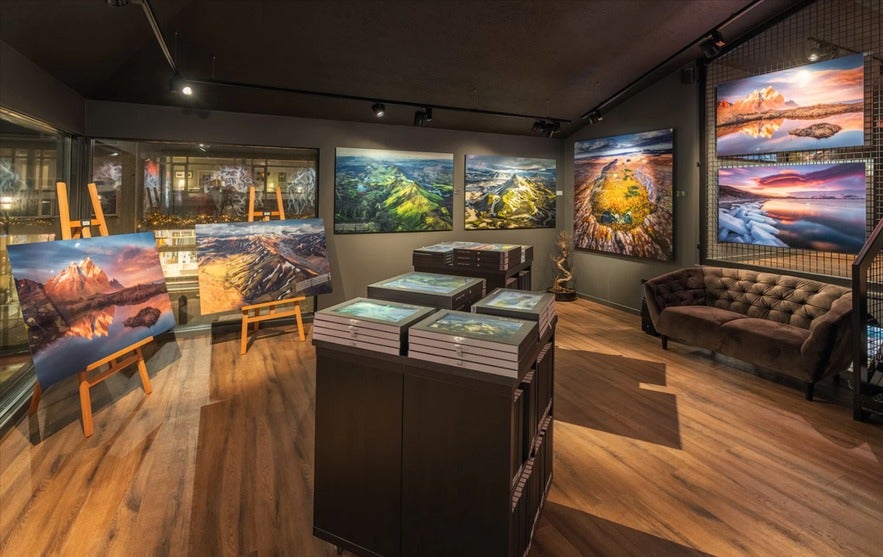 Iurie Fine Art in Reykjavik is a gallery displaying the work of Iurie Belegurschi, an Iceland-based photographer with a talent for capturing nature in incredible ways. They have three locations in the city center and welcome anyone interested in art, nature, or photography.
Iurie Fine Art in Reykjavik is a gallery displaying the work of Iurie Belegurschi, an Iceland-based photographer with a talent for capturing nature in incredible ways. They have three locations in the city center and welcome anyone interested in art, nature, or photography.
The works showcase Iceland’s natural landscapes and their stunning colors, including coastlines, glaciers, ice caves, volcanic areas, and the northern lights. Some of the works on display feature the same subject captured in different seasons, and sometimes, years apart, displaying how nature changes with time and from human influence.
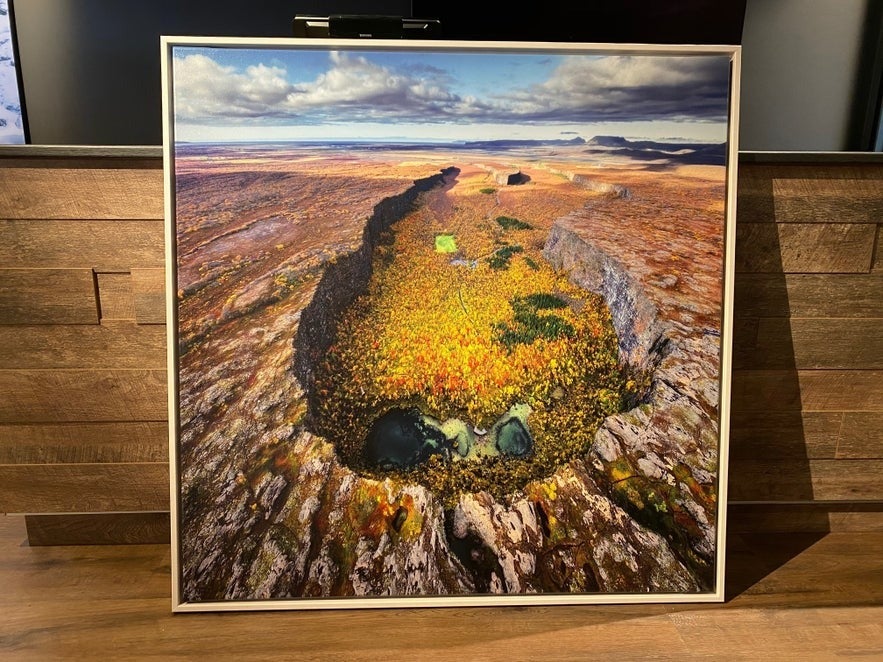
While Iurie Belegurschi mostly focuses on Icelandic scenery, he has also captured landscapes in places like Antarctica, Greenland, and Japan. These works are sometimes on display at Iurie Fine Art but can also be found on the gallery's website.
If an art piece captures your eye, you can purchase high-quality prints from materials like canvas, glass, and aluminum. There are different sizes available, so you can easily find a piece that fits well in your luggage, but if you want a larger print, they offer overseas delivery straight to your home.
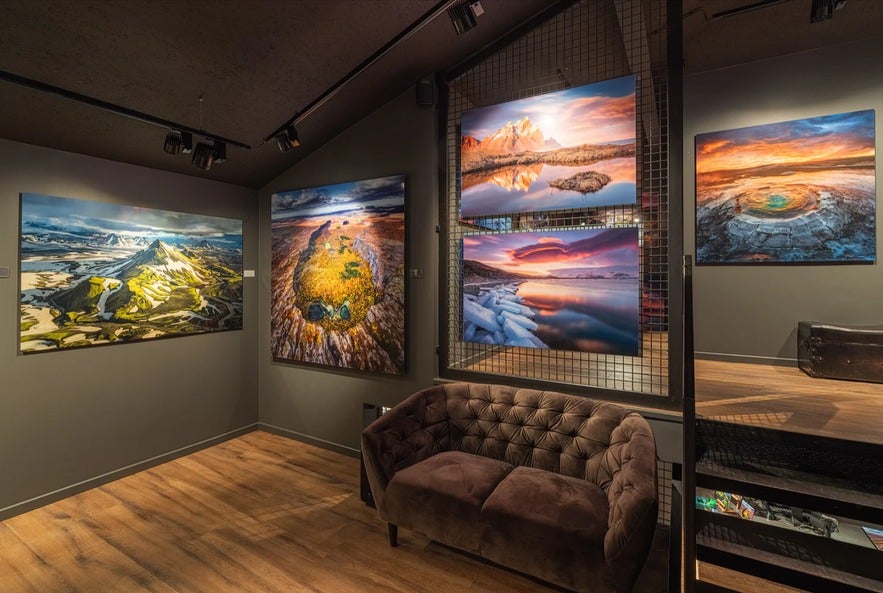
Whether you're interested in a unique souvenir or just want to admire nature, it's well worth stopping by the Iurie Fine Art gallery. Iurie Belegurschi captures Icelandic landscapes in ways you've never seen before, and everyone is welcome to stop by and admire the works. Their three locations are right in the city center, so it's easy to visit while exploring Reykjavik.
Iurie Fine Art
- Address: Skolavordustigur 6, Laugavegur 25, and Tryggvagata 23, 101 Reykjavik
- Open: Daily from 10 AM - 6 PM
9. Hafnarborg Center of Culture and Fine Art
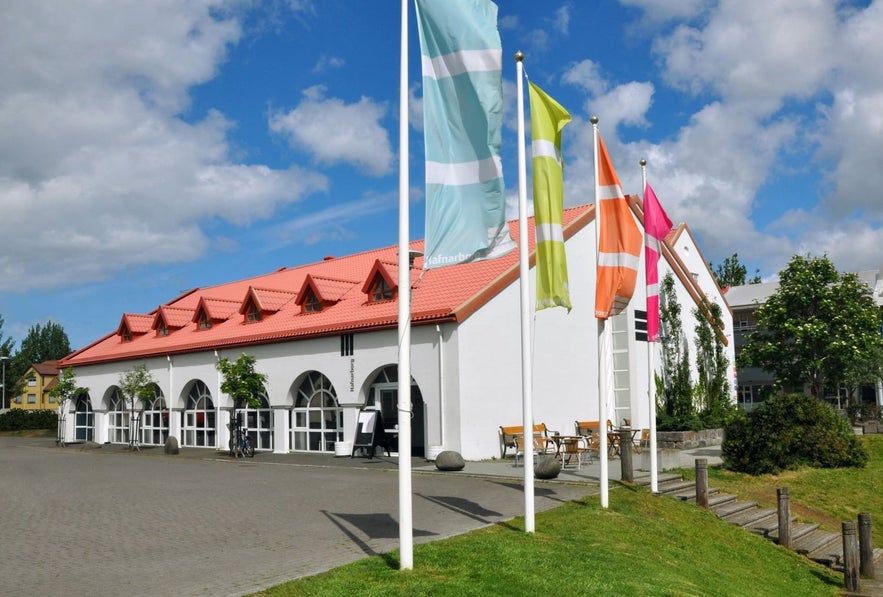
The Hafnarborg Center for Culture and Fine Art is located just a 20-minute drive from downtown Reykjavik, nestled in the charming town of Hafnarfjordur. It stands as a vibrant cultural institution dedicated to the promotion of local artists, providing them with an opportunity to share their creativity with a wider audience.
The art center was founded in 1983 when husband and wife Sverrir Magnusson and Ingibjorg Sigurjonsdottir gave their house and private art collection to the town of Hafnarfjordur. The gift had the condition that their house would be used as a cultural center for art. In the following years, their house was extended and renovated into an art center, and in 1988 Hafnarborg opened its doors to the public.
Hafnarborg hosts between eight and ten temporary exhibitions per year that focus on works by established artists and by up-and-comers. It's part of the art center's philosophy to display new art and to be an inspiring and stimulating place for guests. Therefore, themes and art mediums are very diverse, so make sure to check out the exhibition schedule during your trip!
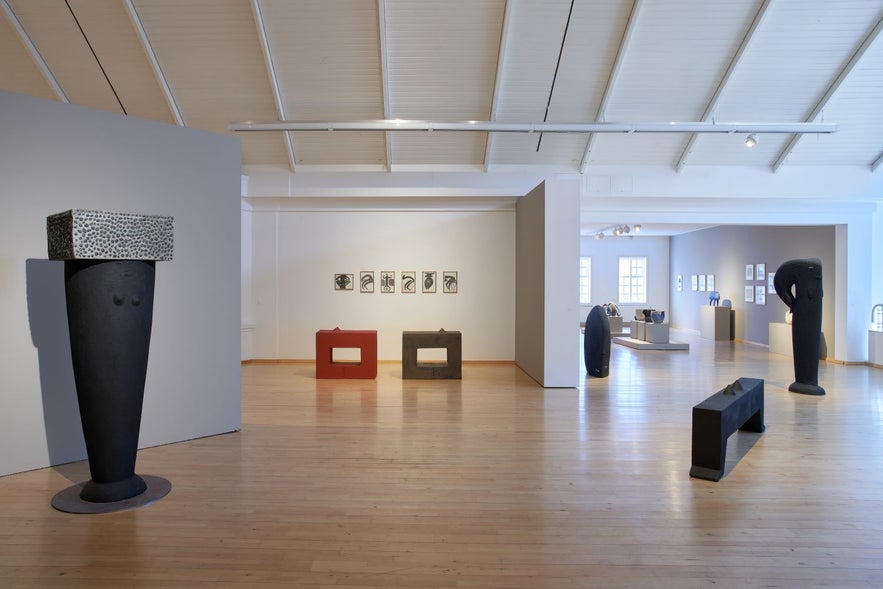
When you visit, you will find a small exhibition room by the entrance. This area is often used to host work by specific artists who want to display their collections. The main exhibition space is on the second floor.
There you will find larger exhibitions, often featuring multiple artists or art forms. You can also still see the walls and windows of Sverrir's and Ingibjorg's living room, as they are often utilized to create separation between different artists, types of art forms, or themes within exhibitions.
In addition to its exhibitions and collections, the Hafnarborg Art Center offers a diverse program of events and educational activities designed to engage a wide audience. These include artist talks, workshops, guided tours, and even concerts! Each provides visitors with the opportunity to deepen their understanding and enjoyment of art and connect with the local creative community.
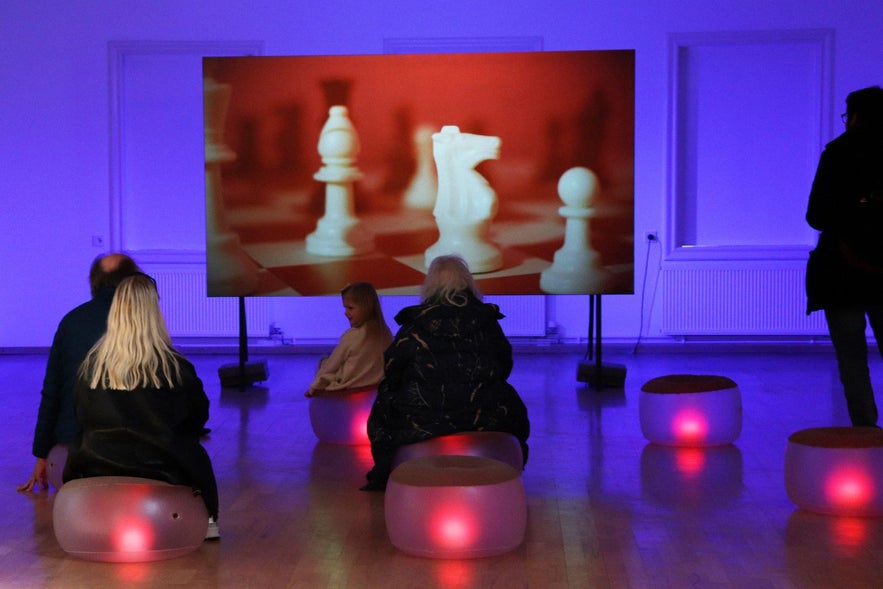 The center also has a nice museum shop where you can get art books and souvenirs that relate to Icelandic art. There's also a restaurant in the building, Krydd, that offers a diverse menu and great cocktails!
The center also has a nice museum shop where you can get art books and souvenirs that relate to Icelandic art. There's also a restaurant in the building, Krydd, that offers a diverse menu and great cocktails!
A visit to Hafnarborg also offers a chance to explore the town of Hafnarfjordur. The art center is located along the old main street, close to shops, cafés, and restaurants. It's also a 10-minute walk from the charming Hafnarfjordur Museum, which showcases artifacts donated by locals that tell the history of the town.
Hafnarborg
- Address: Strandgata 34, 220 Hafnarfjordur
- Open: Wednesday to Monday, 12 PM - 5 PM. Closed on Tuesdays
8. Reykjavik Museum of Photography
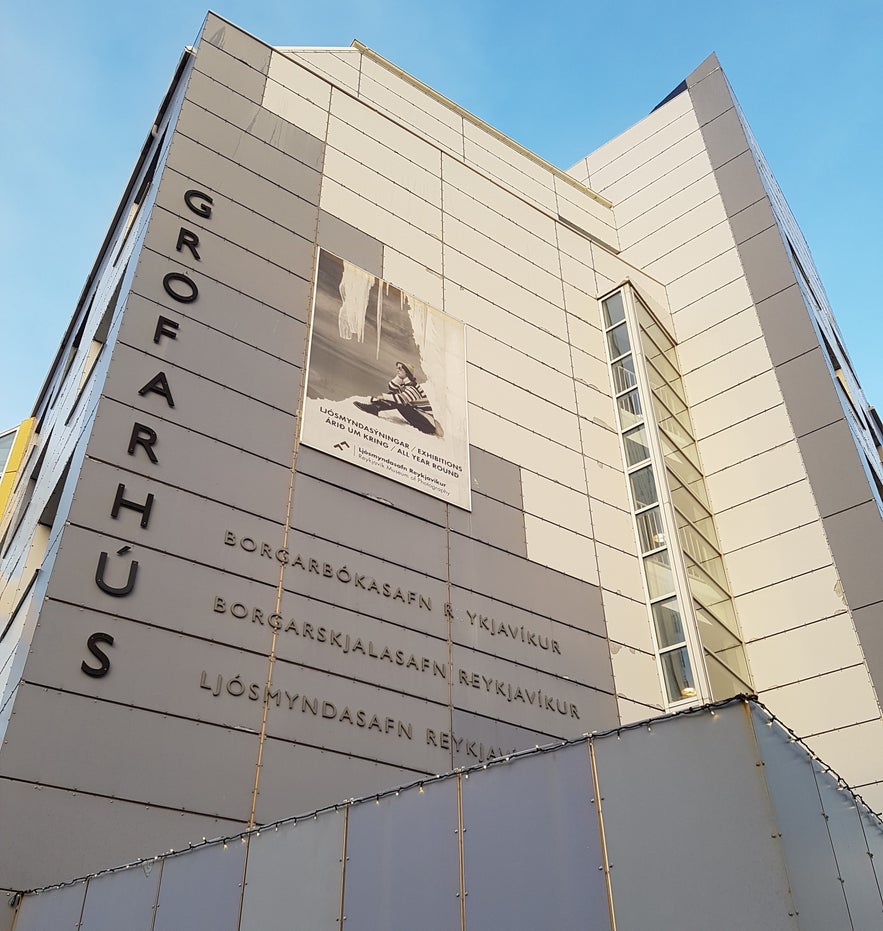 The Reykjavik Museum of Photography is located on the top floor of the same building that houses the Reykjavik City Library. It's dedicated to preserving and exhibiting Icelandic and international photography, spanning from the early days of photography to the present.
The Reykjavik Museum of Photography is located on the top floor of the same building that houses the Reykjavik City Library. It's dedicated to preserving and exhibiting Icelandic and international photography, spanning from the early days of photography to the present.
It's conveniently located in the center of Reykjavik, next to the Reykjavik Art Museum, and it's also part of the Reykjavik City Museum Collective, which includes some of the best museums in the city!
The museum's amazing collection offers insight into the history and development of Iceland, told by those who lived through it and documented it. A large part of their collection has also been made available in a photography database on their website that anyone can explore!
Exhibitions are varied, and they aim to show both historical and contemporary photography focusing on artistic, social, and historical subjects compiled by professional and amateur photographers. They're generally temporary and change multiple times per year, so make sure to keep an eye on what's on offer during your trip to Iceland.
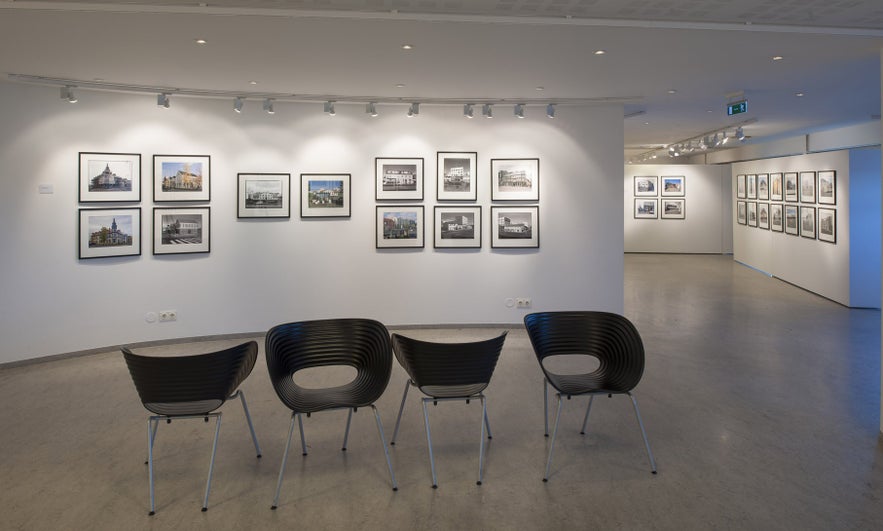 They also host the annual exhibition of 'Photograph of the Year,' where press photography of each previous year is displayed. It's usually hosted around May and is a fantastic way to get insight into recent events in the country while enjoying great photography!
They also host the annual exhibition of 'Photograph of the Year,' where press photography of each previous year is displayed. It's usually hosted around May and is a fantastic way to get insight into recent events in the country while enjoying great photography!
We recommend taking time to check out the Photography Museums exhibitions during your stay, especially if you're a photography lover. It's a great way to get a deeper insight into the country's history, culture, and current events.
The museum is also notable for publishing its own photography books, so make sure to visit the gift shop. You'll also find other fun items there, like posters, decor, and unique photography-related souvenirs!
Reykjavik Museum of Photography
- Address: Grofarhus in Tryggvagata 15 (top floor), 101 Reykjavík
- Open: Monday to Thursday from 10 AM - 6 PM, Friday from 11 AM - 6 PM, Weekends from 1 PM - 5 PM.
- Admission is free for City Cardholders
7. The Marshall House
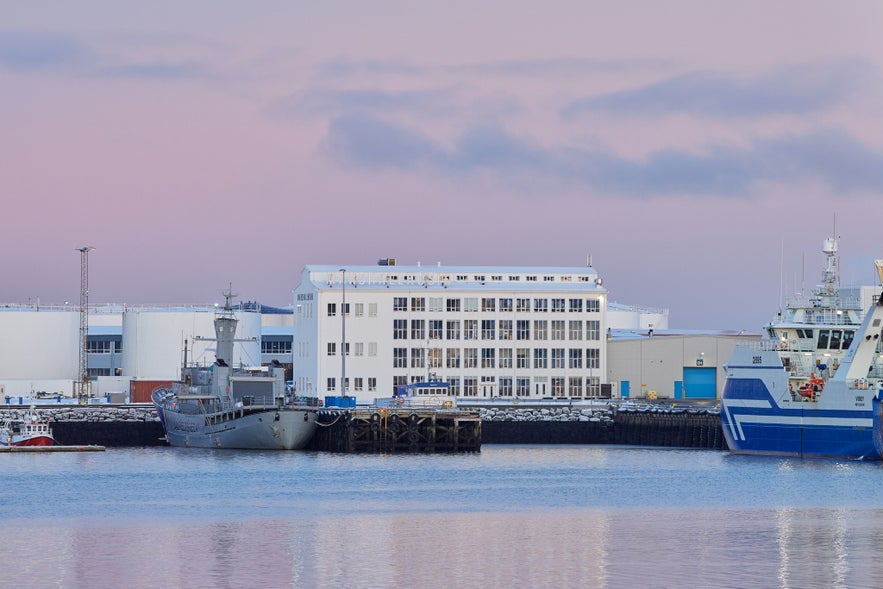
Photo from Marshallhusid.
In the historic Marshall House, you'll find the contemporary art hub of Reykjavik. There you can see new and innovative work by diverse artists, both Icelandic and international. It's located on the Grandi area, about a 20-minute walk from central Reykjavik, and is an essential stop for anyone interested in exploring the dynamic world of contemporary Icelandic art.
Most notably, you can visit the Living Art Museum. Known as Nylistasafnid in Icelandic, or Nylo for short, it is the main platform for contemporary art in Iceland. It was founded in 1978 by a group of artists, making it the oldest artist-run museum or exhibition space in Europe!
Since then, the museum has become a vital platform for emerging and established artists, fostering creative dialogue and artistic innovation. It houses over 2000 pieces of contemporary art in its collection and showcases varied temporary exhibitions in collaboration with different artists. They also host many events, such as exhibition talks with artists and art seminars!
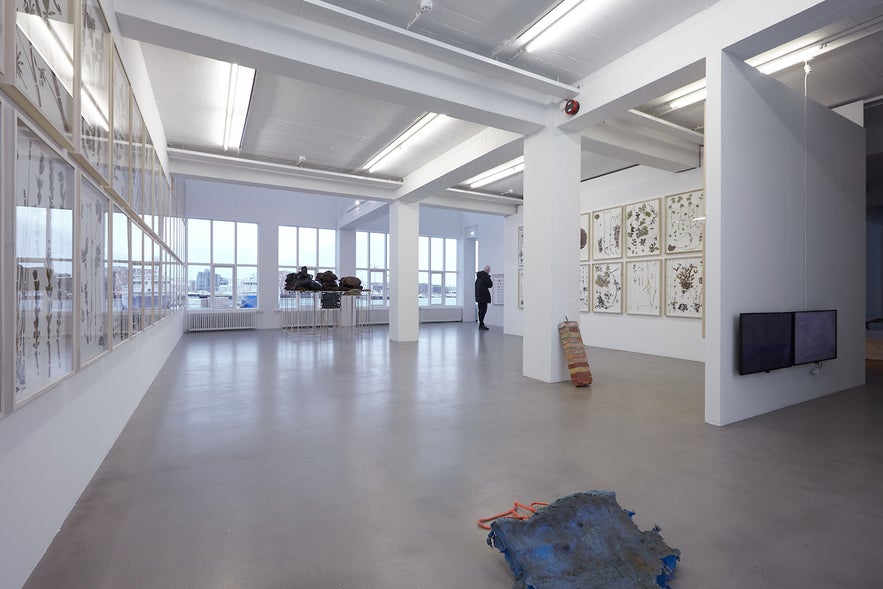
Photo from Wikimedia, Creative Commons, by Nylistasafnid. No edits made.
The Living Art Museum's exhibition program focuses on showcasing a variety of contemporary art by Icelandic and international artists. The museum also promotes experimental and interdisciplinary art forms, such as installations, video art, and performance pieces. This emphasis offers visitors a fresh and exciting perspective on the country's art scene.
They also run an internship program year-round, perfect for aspiring artists, exhibitors, or others who want hands-on experience dealing with the intricacies of managing and engaging in a gallery space.
In the Marshall House, you can also visit Kling & Bang, a gallery that was founded by ten artists in 2003. The gallery presents provocative and out-of-the-box artwork by different artists, so it's a good option for those looking to see unique art. They host temporary exhibitions year-round, so don't miss out on what they have on display during your visit!
Additionally, the artist Olafur Eliasson has a showroom on the top floor of the Marshall House, and on the bottom floor, you will find La Primavera, a fantastic Italian restaurant! It's also close to many other attractions in the Grandi, like the Reykjavik Maritime Museum, Saga Museum, and the Whales of Iceland exhibition.
The Living Art Museum and Kling & Bang
- Address: The Marshall House, Grandagardur 20, 101 Reykjavik
- Open: Wednesday to Sunday from 12 PM - 6 PM. Closed on Mondays, Tuesdays, and in between exhibitions.
6. Asmundarsafn - Asmundur Sculpture Museum
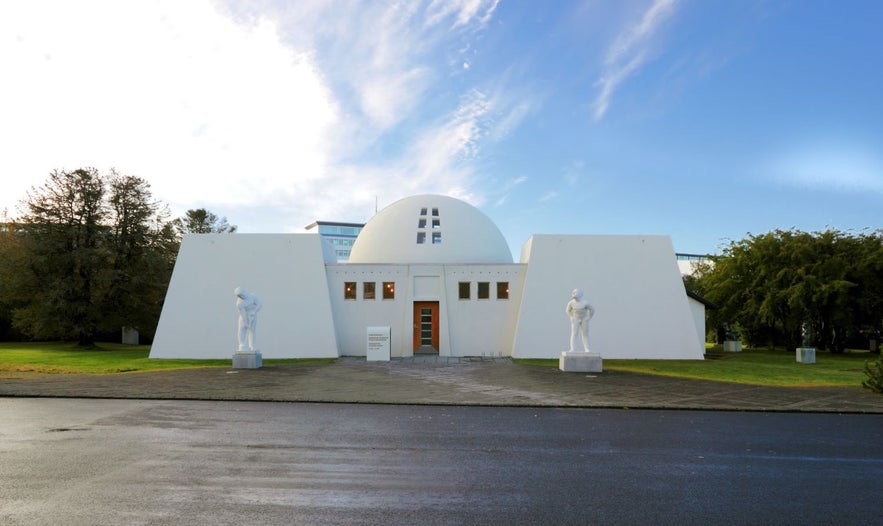
One of the more unique art museums to visit during your stay in Reykjavik is the Asmundur Sculpture Museum. It's part of the Reykjavik Art Museum and focuses on the work of renowned sculptor Asmundur Sveinsson (1893-1982).
The museum always exhibits the work of Asmundur but will also regularly exhibit work by other Icelandic artists, often whose work has some relationship to Asmundur’s style of sculpture. The building is also surrounded by a beautiful sculpture garden; 30 of Asmundur’s sculptures decorate the area, which can be visited for free all year round.
The museum building is itself a piece of art and was once the artist’s home and studio. It's instantly recognizable for its abstract architecture, sloping walls, and a white central dome. The artist primarily designed and built the building himself between the years 1942 - 1959 and was influenced by the round-roofed buildings of the Mediterranean and the Middle East, as well as the Pyramids of Egypt.
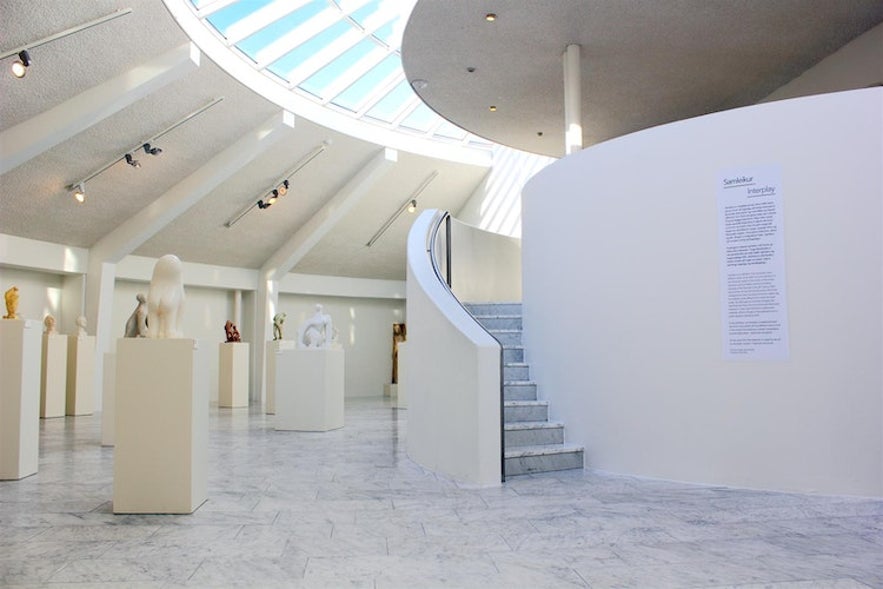
Photo from the Reykjavik Art Museum.
As a young aspiring artist, Asmundur enrolled at the Technical College of Iceland in 1915, undertaking a four-year apprenticeship under the tutorship of Rikhardur Jonsson, the artist and sculptor responsible for the design of Iceland’s coat of arms.
Following the end of his apprenticeship, Asmundur traveled to Copenhagen, Denmark, and then to Stockholm in Sweden, where he often studied under the direction of Swedish sculptor Carl Milles. Forever looking to continue his education, Asmundur then traveled to Paris to learn from the nude sculptor Charles Despiau.
He returned to Iceland in 1929, where he focused on creating sculptures of men, women, and farm animals, all under the general theme of work. In the 1950s, he became more interested in abstract sculptures, taking his inspiration from folklore, Norse mythology, and culture, notably the Icelandic sagas.
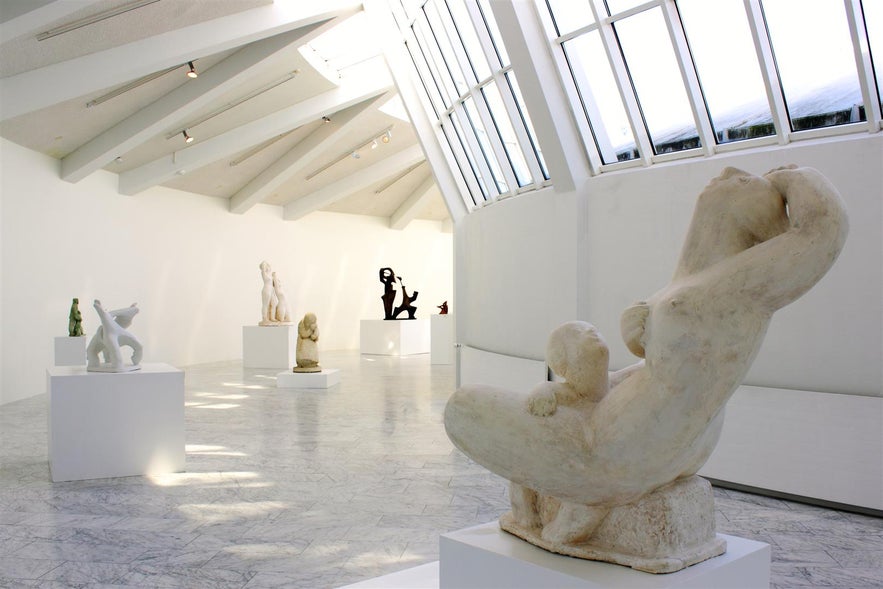
Photo from the Reykjavik Art Museum.
Asmundur strongly believed that art should be accessible to everyone, no matter their social or financial status. Therefore much of his work can be found around Reykjavik and its parks, as well as around the country.
Works from the artist can be seen at the hill Oskjuhlid near Perlan and at the historic farm and church estate of Borg a Myrum. Another noticeable sculpture, "Saemundur on the Seal's Back," is located in front of the main building of the University of Iceland in Reykjavik.
Asmundur Sculpture Museum
- Address: Sigtun 56, 105 Reykjavik
- Open: Daily from 10 AM - 5 PM in May - September, and 1 PM to 5 PM in October - April
- Admission is free for City Cardholders
5. Einar Jonsson Museum and Sculpture Garden
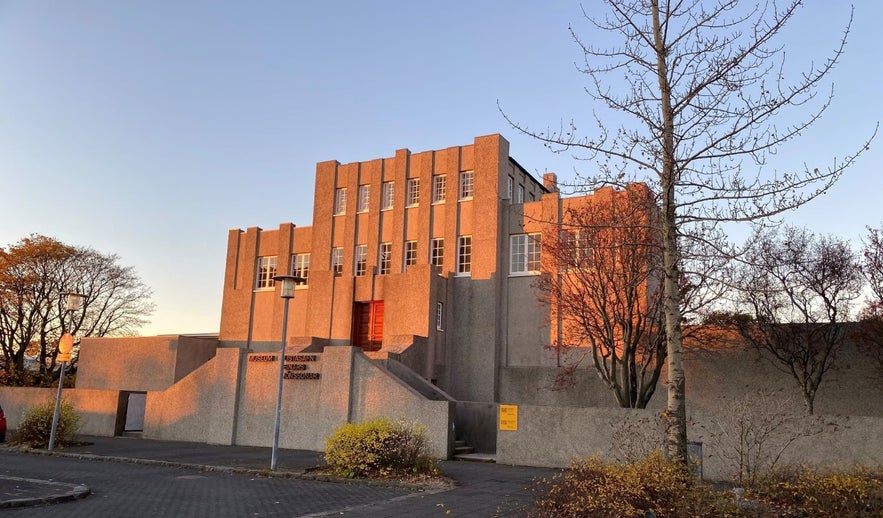
Photo from the Einar Jonsson Museum.
The Einar Jonsson Museum and Sculpture Garden is located next to the iconic Hallgrimskirkja church in downtown Reykjavik and celebrates the work and life of sculptor Einar Jonsson (1874-1954). During a visit, you'll get to explore the life and work of a leading figure in Icelandic art history and get further insight into the country's culture.
The museum, which opened in 1923, was originally designed by Einar Jonsson himself and stands as a testament to his artistic vision. He believed that all people should have equal access to art, and in 1909 he offered much of his work as a gift to the nation in return for government funding for building the country's first art museum.
The building's architectural style combines traditional Icelandic elements with contemporary European influences, creating a unique but fitting backdrop for the artist's works. The building also included his home and art studio, which visitors can access to gain insight into his life and creative process.
Upon entering, visitors are greeted by an impressive collection of Einar Jonsson's sculptures, paintings, and drawings. The museum is divided into several rooms, each dedicated to a different period of his life or a specific theme in his work.
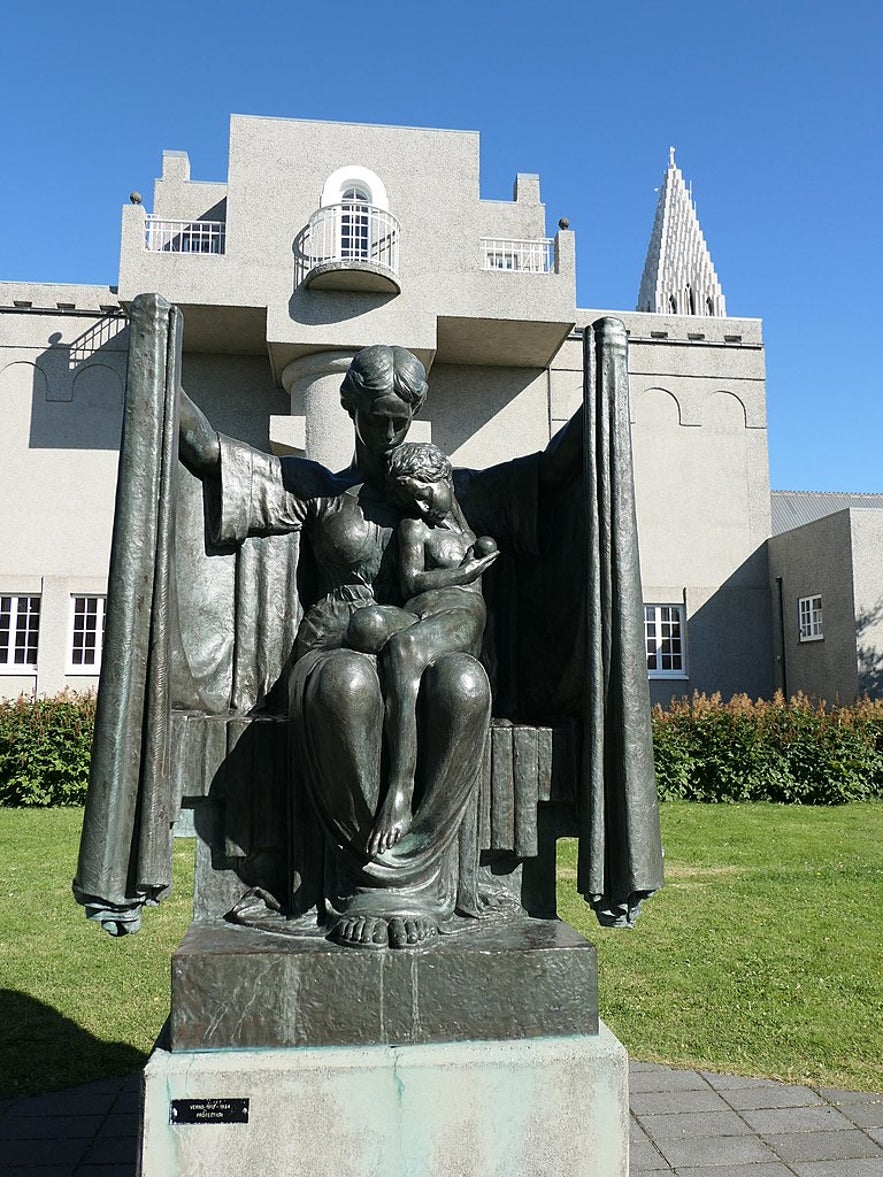
Photo from Wikimedia, Creative Commons, by WiseWoman. No edits made.
In addition to the indoor exhibits, the museum is home to a tranquil sculpture garden where visitors can enjoy a selection of the artist's work, many depicting various mythological figures and heroes. Even if you don't visit the museum building itself, it's still worth it to take a walk through the garden during your exploration of Reykjavik, especially as it's accessible any time of day, and entry is free!
You can also find works by Einar in other places around the world. From 1914, Einar had a number of works built for the American Government. These included a statue of the forefather of the Icelandic Independence Movement, Jon Sigurdsson, for the Icelandic community in Montreal, Canada. He also made a statue for the City of Philadelphia of the Icelandic explorer Thorfinnur Karlsefni, pictured below.
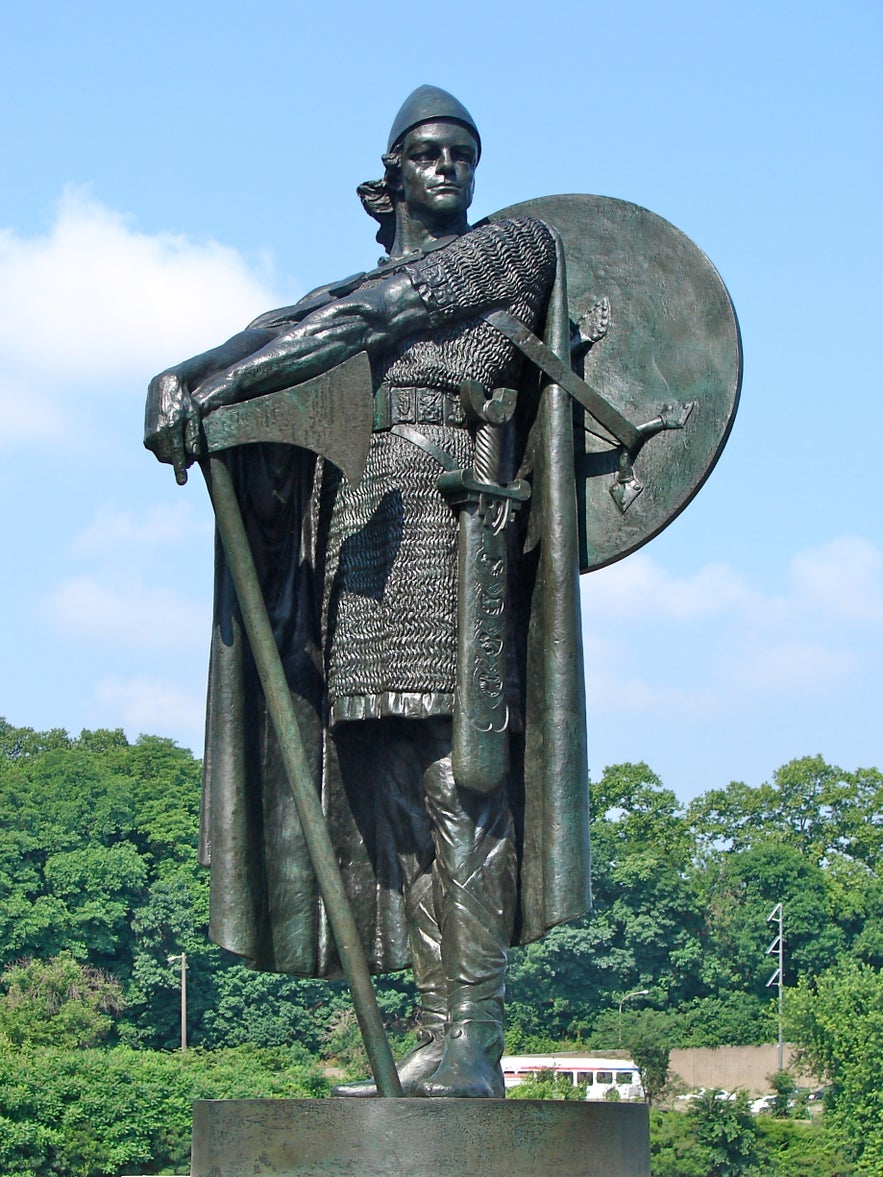 Photo from Wikimedia, Creative Commons, by Smallbones. No edits made
Photo from Wikimedia, Creative Commons, by Smallbones. No edits made
The Einar Jonsson Museum and Sculpture Garden
- Address: Eiriksgata 3, 101 Reykjavik
- Open: Tuesday - Sunday from 12 PM - 5 PM. Closed on Mondays.
4. Safnahusid - House of Collections
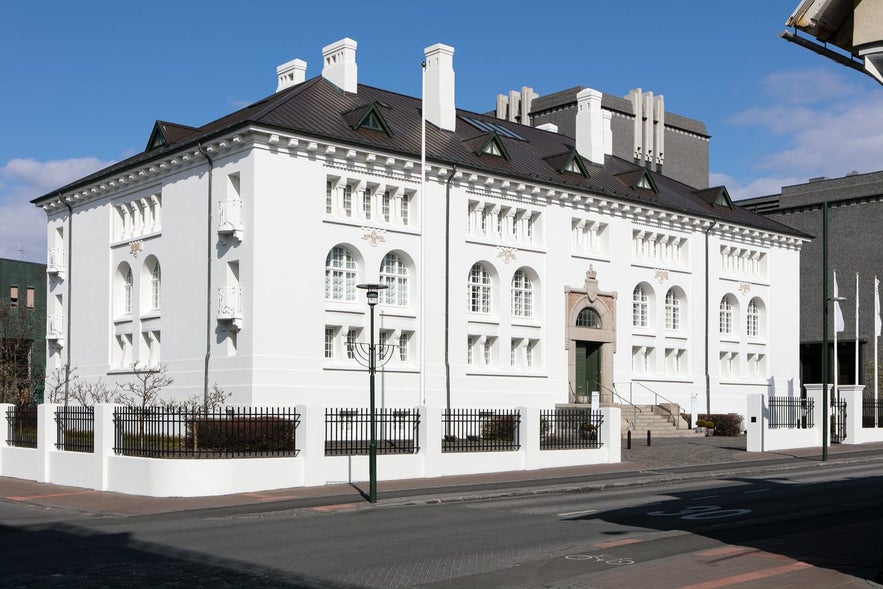 On the lively street, Hverfisgata, in downtown Reykjavik, you can find the beautiful Safnahusid or the House of Collections, sometimes called the Culture House. It's part of the National Gallery of Iceland and showcases many treasures of Icelandic art from the gallery's vast collection.
On the lively street, Hverfisgata, in downtown Reykjavik, you can find the beautiful Safnahusid or the House of Collections, sometimes called the Culture House. It's part of the National Gallery of Iceland and showcases many treasures of Icelandic art from the gallery's vast collection.
It bridges the gap between art and science. During your visit, you're encouraged to think about your own experience with the topic of each art piece as a way of connecting and exploring the art in new ways.
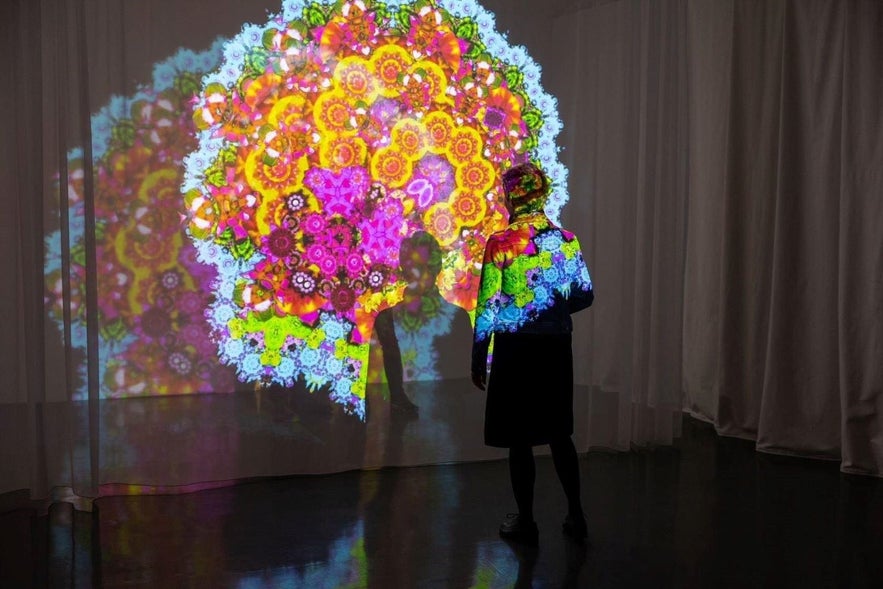 The exhibition is spread over four floors, connected by a beautiful grand staircase, and each floor explores a different theme. We recommend starting from the top floor and working your way down.
The exhibition is spread over four floors, connected by a beautiful grand staircase, and each floor explores a different theme. We recommend starting from the top floor and working your way down.
The fourth floor is themed around air, featuring art connecting to the sky and space. The third one centers around the land, focusing mostly on animals. The second floor focuses on water, especially on the ocean, and the bottom floor explores the theme of natural principles. In the basement, you'll also find a small exhibition dedicated to Icelandic folklore.
The whole exhibition was specially designed with children in mind, with interactive displays and games. Hence, it's a great museum to visit with the family while getting to know Icelandic art as well as Icelandic nature! Entry is also free for children under 18 years.
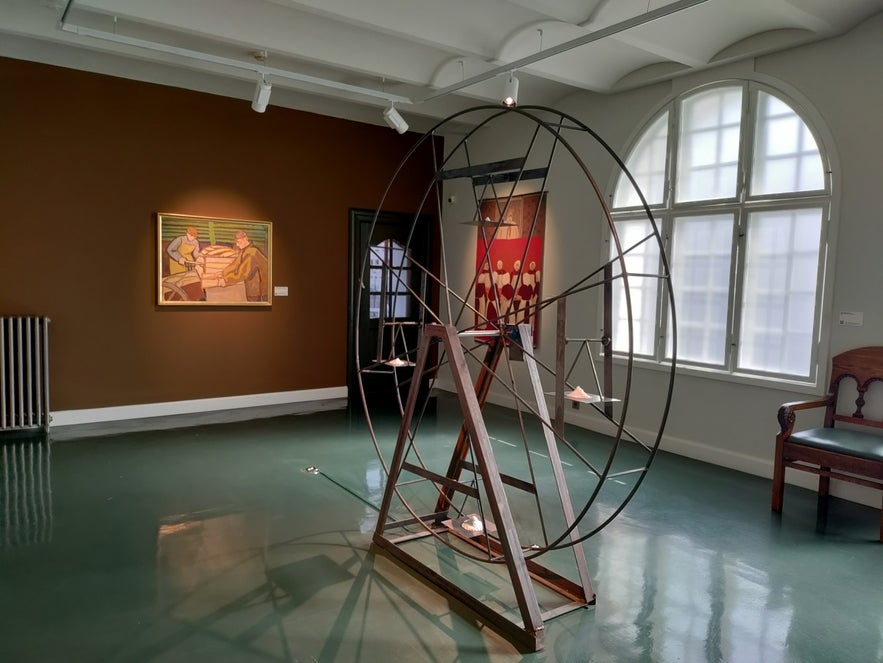 It's also worth visiting for the building itself, as many consider the House of Collections to be one of the more beautiful buildings in Reykjavik. It was built between 1906 and 1908 and was originally intended to house the National Library and National Archives. You can explore the old reading hall in the building, which has been restored. Since then, it has served many purposes, including as part of the National Museum of Iceland, until 2021, when it was handed over to the National Gallery of Iceland.
It's also worth visiting for the building itself, as many consider the House of Collections to be one of the more beautiful buildings in Reykjavik. It was built between 1906 and 1908 and was originally intended to house the National Library and National Archives. You can explore the old reading hall in the building, which has been restored. Since then, it has served many purposes, including as part of the National Museum of Iceland, until 2021, when it was handed over to the National Gallery of Iceland.
The building has a café and a nice museum shop where you can find posters, cards, and decor featuring Icelandic art. It's also located in the center of Reykjavik, next to the National Theater of Iceland, making it a convenient stop when exploring the city on foot.
House of Collections
- Address: Hverfisgata 15, 101 Reykjavik
- Open: Tuesday - Sunday from 10 AM - 5 PM. Closed on Mondays during winter
- Admission is free for City Cardholders
3. National Gallery of Iceland
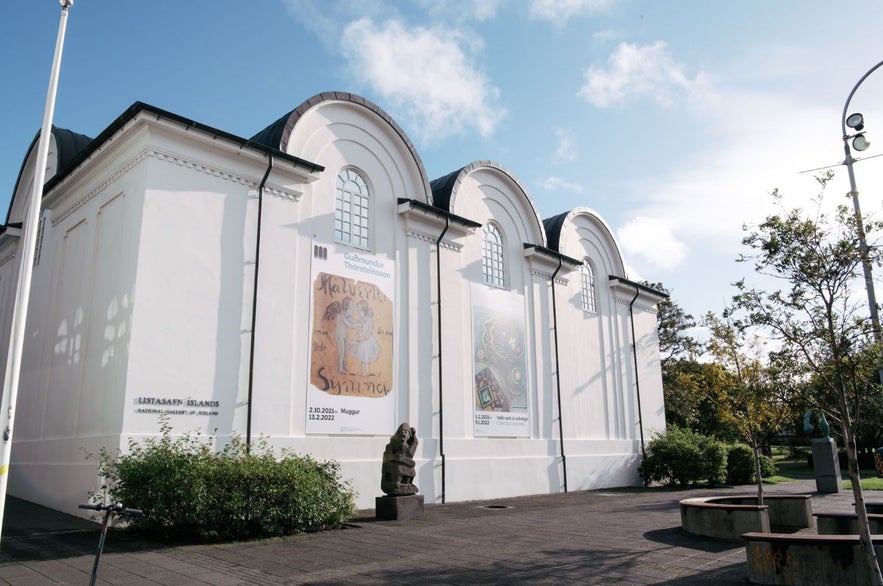 The National Gallery of Iceland houses an extensive collection of art and hosts varied exhibitions that explore diverse themes and artistic styles, both from Iceland and the wider world. Its collection is housed in two buildings, the main one located by the Tjornin pond in Reykjavik, and the House of Collections on Hverfisgata street.
The National Gallery of Iceland houses an extensive collection of art and hosts varied exhibitions that explore diverse themes and artistic styles, both from Iceland and the wider world. Its collection is housed in two buildings, the main one located by the Tjornin pond in Reykjavik, and the House of Collections on Hverfisgata street.
During a visit to the museum's main building, you will see a variety of art styles and forms from artists that helped shape the Icelandic art scene, as well as international art. It's, therefore, a must-see museum for any art lover visiting Iceland.
The exhibitions are generally temporary and center around the work of specific artists, certain themes, or even whole private collections, which have often been gifted to the museum, and feature varied artwork. They can also be dedicated to specific art pieces, like the Glassrain by the artist Ruri from 1984. Her work can be seen around the capital area and she also made the Rainbow that's located outside Keflavik International Airport.
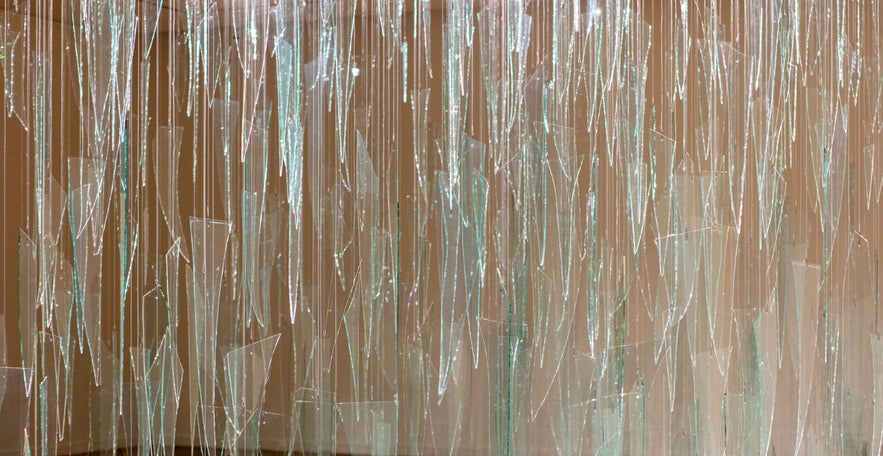
The gallery also has a nice gift shop and organizes various events and educational programs, including lectures, workshops, and guided tours. These activities cater to a wide range of audiences, from children and families to art enthusiasts and professionals, so keep an eye out for the museums' upcoming events during your stay in Iceland!
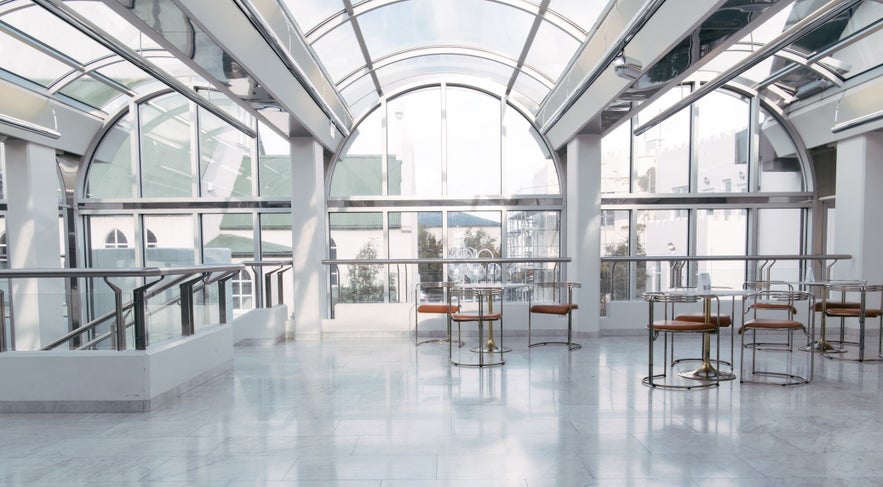
National Gallery of Iceland
- Address: Frikirkjuvegur 7, 101 Reykjavik
- Open: Tuesday - Sunday from 10 AM to 5 PM. Closed on Mondays during winter
- Admission is free for City Cardholders
2. Kjarvalsstadir - Kjarval Museum
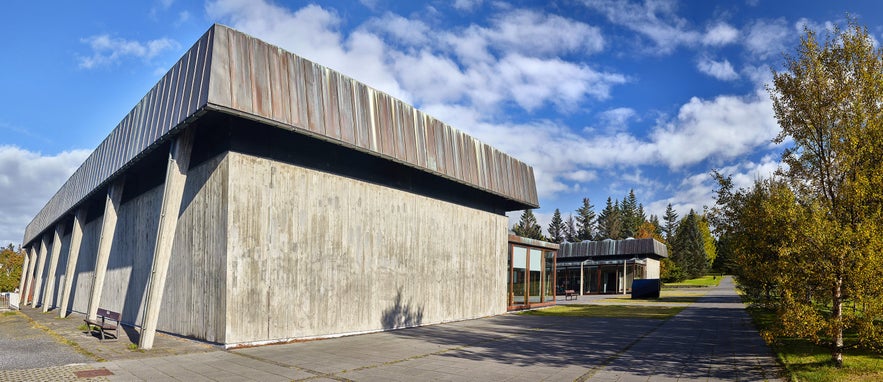
Kjarvalsstadir is one of the three buildings belonging to the Reykjavik Art Museum. It is dedicated to the Icelandic painter Johannes S. Kjarval (1885-1972), who is considered to be one of the most important artists in Iceland’s history.
The architecture of the museum is unapologetically Nordic modernist, with floor-to-ceiling windows overlooking the popular Klambratun Park. It has a charming bistro, Klambar, which is open from 10 AM to 5 PM, which makes a great option for lunch or afternoon coffee. It also includes a nice gift shop and an Idea's Lab where families can let their artistic side flow forward and make their own art pieces together.
The Kjarval Museum focuses on exhibiting a variety of important works from Icelandic 20th-century art history, split between two exhibition spaces in the building. One of the exhibition spaces focuses on different influential artists, such as Hildur Hakonardottir and Birgir Andresson. This exhibition changes regularly, so make sure to check out what's on offer during your visit.
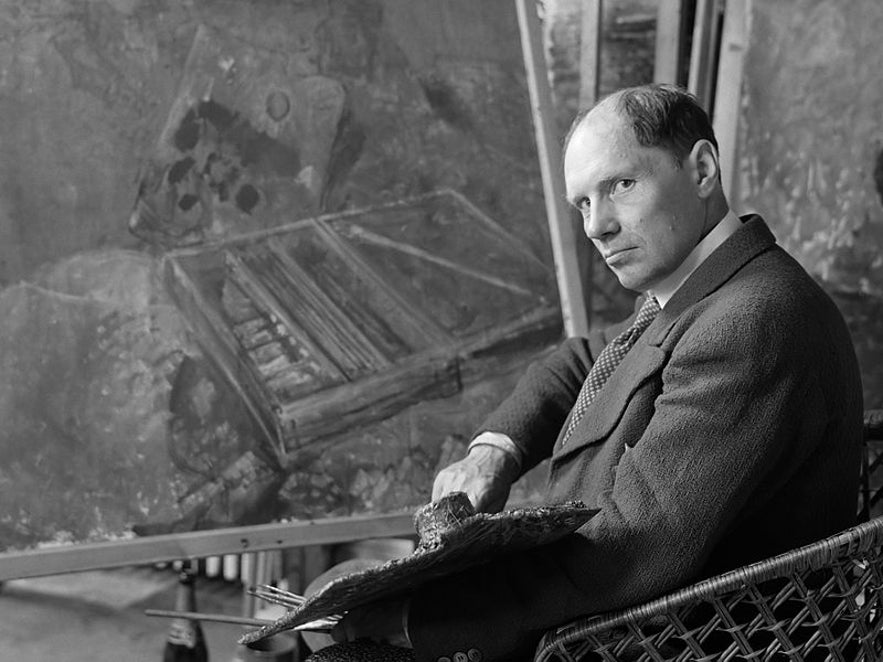
The other exhibition space displays paintings and sculptures produced by Johannes S. Kjarval. As a young man, he worked as a fisherman but he was also a prolific drawer and painter. At age 27, he received financial support from both his fellow fishermen and the Icelandic Confederation of Labour to attend the Royal Danish Academy of Fine Arts.
Whilst studying in Copenhagen, he was introduced to a vast array of artistic movements and styles, an eclectic mixture of influences that would forever affect both the artist's wide body of work and his creative process. His work featured a variety of styles, and he frequently mixed different ones together.
He's especially known for his landscape paintings which centered around the concept that nature is alive. They capture the surrealism and mystic qualities of Icelandic nature and are a must-see for any art lover interested in getting to know Icelandic art.
His work was immensely influential, both for the Icelandic art scene as well as culturally. For example, Icelandic musician Bjork dedicated a song to him on her debut album, and he is featured on the 2000 krona bill.
Kjarval Museum
- Address: Flokagata 24, 105 Reykjavik
- Open: Daily from 10 AM - 5 PM. Last Thursday of every month, 10 AM - 10 PM.
- Admission is free for City Cardholders
1. Reykjavik Art Museum in Hafnarhus
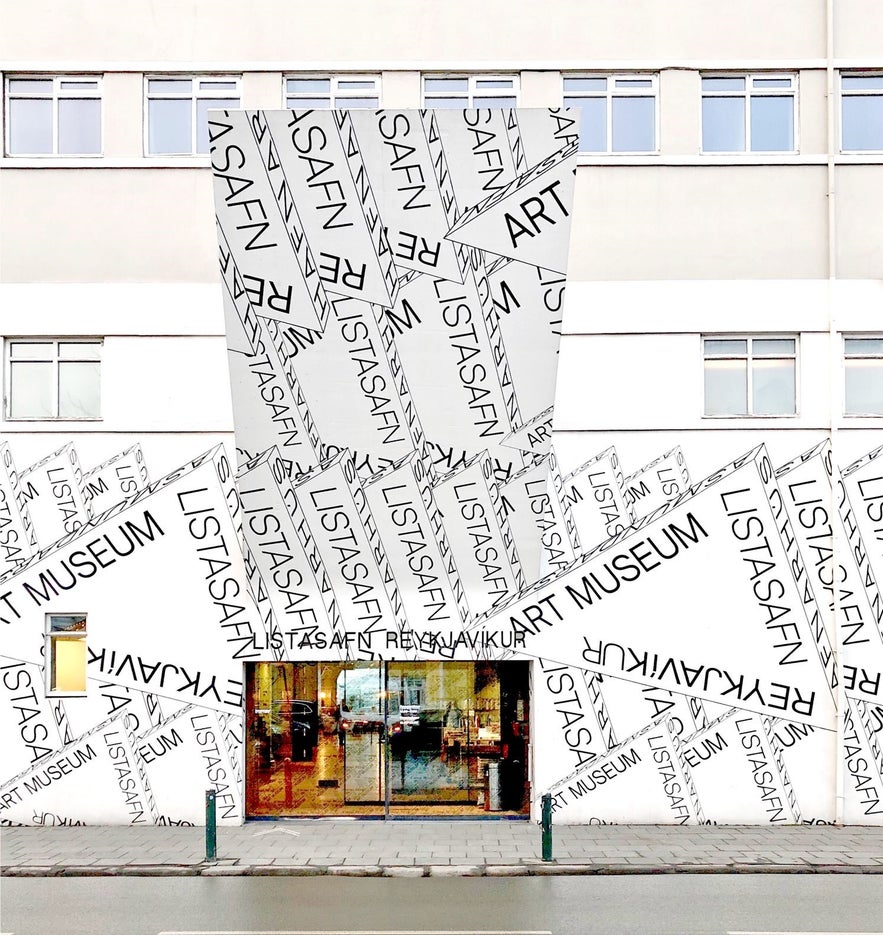 At the top of our list of the best art museums in the city is the Reykjavik Art Museum in Hafnarhus. It's one of three houses that showcase the museum's collection, and we recommend taking time to check out all buildings, as it's one of the best ways to get insight into Icelandic art history. The entry ticket is valid for all exhibitions for 24 hours from purchase and is free for city cardholders.
At the top of our list of the best art museums in the city is the Reykjavik Art Museum in Hafnarhus. It's one of three houses that showcase the museum's collection, and we recommend taking time to check out all buildings, as it's one of the best ways to get insight into Icelandic art history. The entry ticket is valid for all exhibitions for 24 hours from purchase and is free for city cardholders.
Hafnarhus, or 'Harbour house' in English, is the largest of the museum's houses. The building can be found just near the Old Harbour and was, in fact, originally used as an office and fishing warehouse in the 1930s before it was refurbished and reopened as an art museum in 2000.
Throughout the refurbishment process, great care was taken to leave as much of the original architecture as possible. For example, the original doors at street level were refurbished as windows, which give passers-by a peak at the art on display.
In total, the building contains six exhibition spaces, as well as an architecturally unique courtyard. The museum focuses on contemporary art and showcases the work of key artists through Icelandic art history as well as established and emerging current artists.
Most prominently, Hafnarhus permanently exhibits the work of one of Iceland’s postmodern artistic heroes, Erro, one of the country’s most famous contemporary artists.
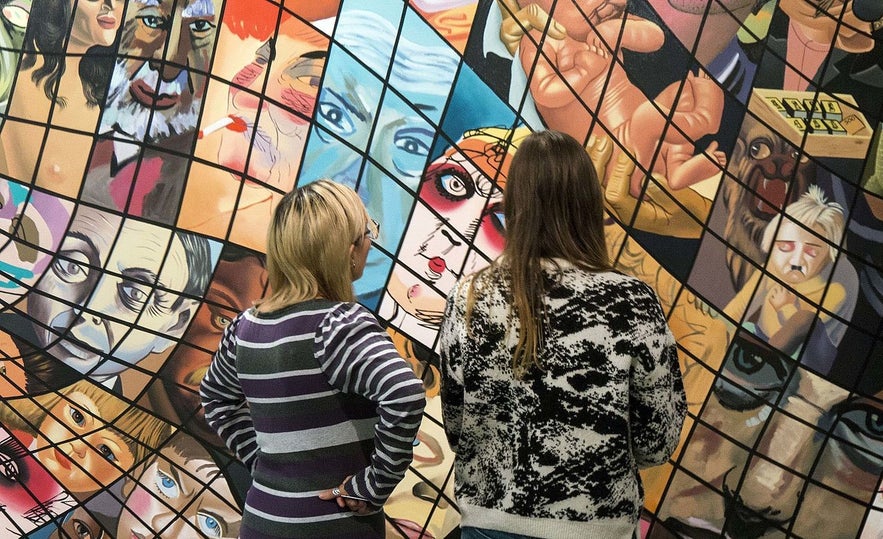
Photo from Wikimedia, Creative Commons, Bryan Ledgard. No edits made.
Born Gudmundur Gudmundsson (1932) in Olafsvik, Erro began his career at the School of Fine Arts in Reykjavik. He later continued his studies in Italy and Norway and for most of his life, he resided in France, Thailand, and the Spanish island of Formentera.
Erro’s style can be easily recognized. The artist often uses large-scale collages, utilizing images from comic strips, advertisements, and politics, creating works that offer both a high degree of visual stimulation and a coded interpretation of modern affairs. By following this method, the artist secured his reputation as the country’s leading practitioner of Pop Art and Collage.
In 1989, Erro donated over 2000 works of art to the City of Reykjavik, including watercolors, oil paintings, collages, and graphic art. The second floor of the museum is devoted to the artist, with the majority of his pieces taking up the full walls of the gallery space.
For anyone moved by his pieces, there is a museum shop selling postcards, trinkets, clothing, and books, centered around his work. You can view the collection of his work online as well, along with work by other artists, on the Reykjavik Art Museum website.
Also, make sure to keep an eye out for a replica of one of his art pieces, 'Silver Sabler', on your way through the Keflavik International Airport, where it's on display in the commercial area!
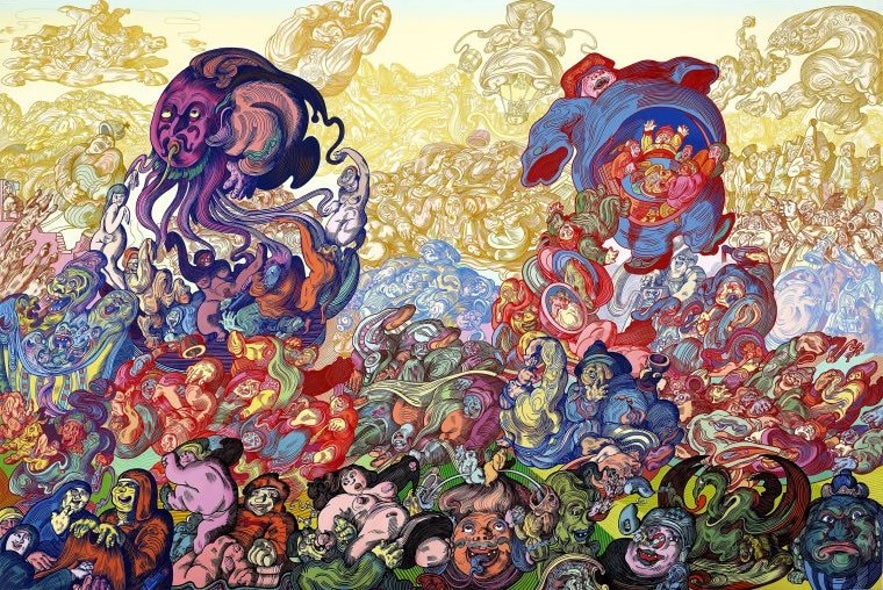
Photo of the artwork Odelscape by Erro from 1982-83, from the Reykjavik Art Museum.
The museum also devotes much of its space to both local and international art and varied art forms. For example, renowned photographer Ragnar Axelsson, or RAX, has recently displayed a part of his series on life in the Arctic and how it's changing. Yoko Ono has also exhibited her work at Hafnarhus, displaying her own brand of interactive modern art.
The museum also makes for a unique venue for musicians and performers as well as for workshops and other events! We recommend keeping an eye out for any events that could be going on during your trip to Iceland.
Reykjavik Art Museum at Hafnarhus
- Address: Tryggvagata 17, 101 Reykjavik
- Open: Daily from 10 AM - 5 PM, except on Thursdays from 10 AM - 10 PM.
- Admission is free for City Cardholders
This is not an exhaustive list of places to appreciate Icelandic art, as there are many smaller galleries located around the city that are worth visiting. The very streets of Reykjavik itself also serve as an outdoor art museum with its amazing collection of street art to stumble upon. We hope you will enjoy immersing yourself in the Reykjavik art scene and get inspired by its vast array of talented artists from Iceland's past and present.
- See also: Icelandic Literature for Beginners
- See also: Music of Iceland
What art museum in Reykjavik do you most want to visit? What art museum would be at the top of your list? Do you agree with our selection? Tell us in the comments below!
Inne interesujące artykuły

Przewodnik po życiu nocnym w Reykjaviku: najlepsze bary i kluby w Islandii
Dowiedz się wszystkiego o życiu nocnym Reykjaviku z naszego kompletnego przewodnika. Co sprawia, że imprezowanie na Islandii różni się od każdego innego miejsca na świecie? O której rozpoczynają się...Czytaj więcejTop 10 rzeczy do zrobienia w Reykjaviku
Przeczytaj o najlepszych rzeczach do zrobienia w Reykjaviku, stolicy Islandii. Reykjavik oferuje nieskończone możliwości spędzania czasu, od tętniącej życiem sceny artystycznej i muzycznej po skarbn...Czytaj więcejZwiedzanie Reykjaviku | Przewodnik po stolicy Islandii
Jakie są najpiękniejsze miejsca Reykjavíku? Gdzie można znaleźć najważniejsze dzieła sztuki i poznać historię czy kulturę tego miejsca? Czytaj dalej, żeby dowiedzieć się wszystkiego, co trzeba wiedz...Czytaj więcej

Pobierz największą platformę turystyczną na Islandii na telefon i zarządzaj wszystkimi elementami swojej podróży w jednym miejscu
Zeskanuj ten kod QR za pomocą aparatu w telefonie i naciśnij wyświetlony link, aby uzyskać dostęp do największej platformy turystycznej na Islandii. Wprowadź swój numer telefonu lub adres e-mail, aby otrzymać wiadomość SMS lub e-mail z linkiem do pobrania.











